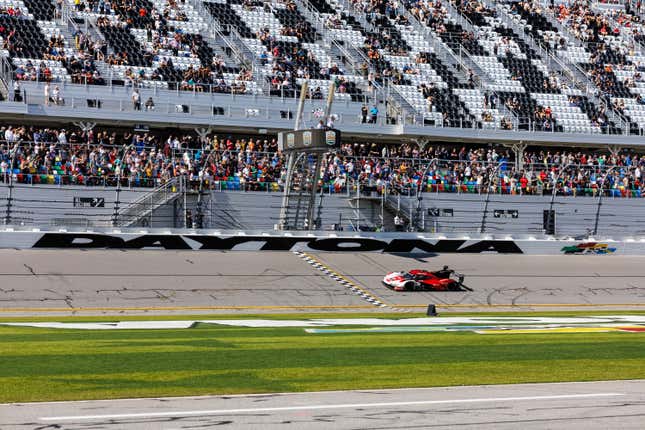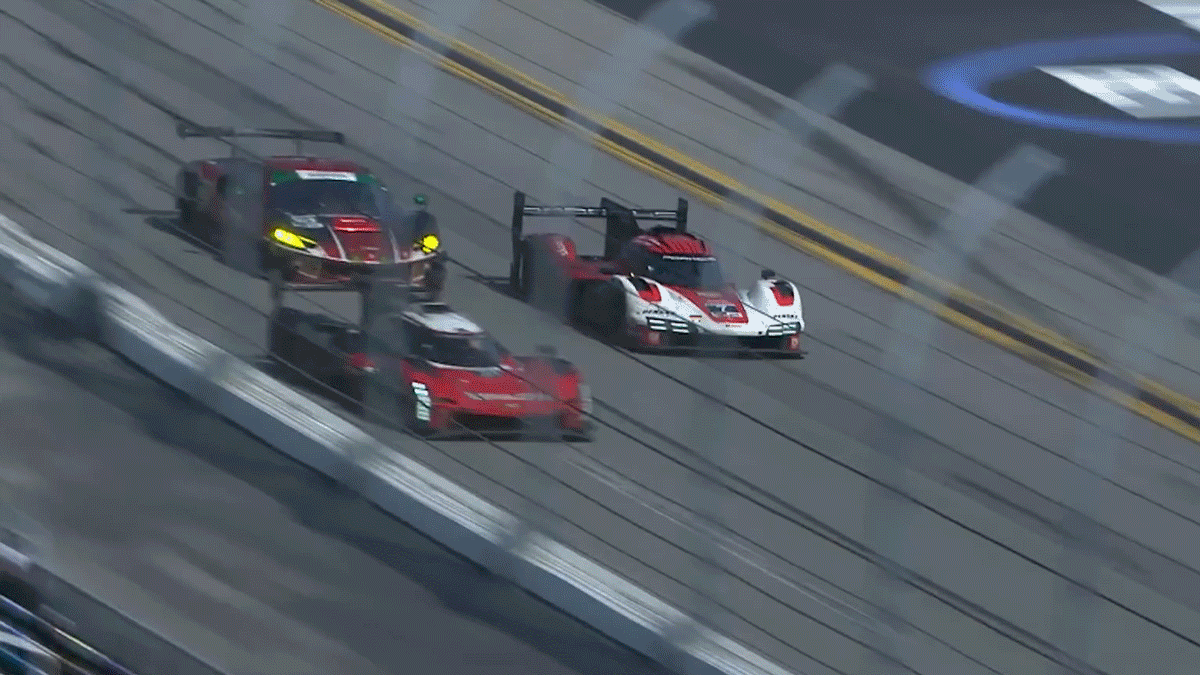This year’s Rolex 24 at Daytona concluded with a thrilling half-hour head-to-head duel. Felipe Nasr, behind the wheel of the No. 7 Penske Porsche 963, was the first to cross the finish line after 23 hours and 58 minutes. Yes, the 24-hour race was finished in under 24 hours. While the premature finish likely didn’t impact the result, many are questioning why race officials at IMSA’s watchmaker-backed endurance classic seemingly couldn’t tell the time.
To set the scene, the Rolex 24 often goes down to the wire despite the IMSA season opener’s ridiculous length. The race of attrition typically features full-course cautions throughout its duration to recover stranded cars out on track. Damaged vehicles are allowed to be towed back to the garages, sort of like a video game reset. More importantly, the field of competitors is bunched up behind the pace car for the restart.
The race’s final caution came when the No. 12 Vasser Sullivan Racing Lexus RC F burst into flames while exiting the pit lane. Team owner Jimmy Vasser told broadcasters that he believed that a plenum fire was the cause. Before the caution, Tom Blomqvist was able to put the No. 31 Whelen Engineering Cadillac V-Series.R ahead of Nasr’s Porsche with a pass through the tri-oval. However, Penske jumped Nasr back to the lead with a quicker pit stop.
The race restarted with just over 30 minutes left. Nasr was not only able to hold off Blomqvist, he was able to stretch the gap out to over a second. As the crowd prepared themselves for one last nerve-wracking lap, the race suddenly ended. The TV scoring bug ticked over from “2 Laps To Go” directed to “Checkered,” signaling the finish. The official in the flag stand overlooking the finish line waved the checkered flag. It was all over.

Now, it’s time to tear up some tinfoil hats. Yes, the victory ended historic droughts for Penske and Porsche. It was the team’s first win at the event since 1969. Porsche’s last overall victory in the Rolex 24 was in 2010 with Action Express Racing.
Of the baseless rumors circulating online, the most prominent conspiracy theory is that IMSA ended the race early because the Porsche was going to run out of fuel. The No. 7 Porsche and the No. 31 Cadillac, run by Action Express, made the final stops at the same time. Publicly available telemetry also showed that both cars had five percent of usable energy left, enough to complete another lap easily. Lastly, Action Express is owned by IMSA Chairman Jim France. Any rational conspiracy would have the race prolonged to give the No. 31 Cadillac a better chance at the win.
We reached out to IMSA and we will add an update when we receive their official statement, but the early finish seems like an honest mistake. I tend to lean on Hanlon’s razor, “Never attribute to malice that which is adequately explained by stupidity.” Miscommunications and mistakes happen in sports officiation in every competition under the sun. Racing is definitely not exempt.

